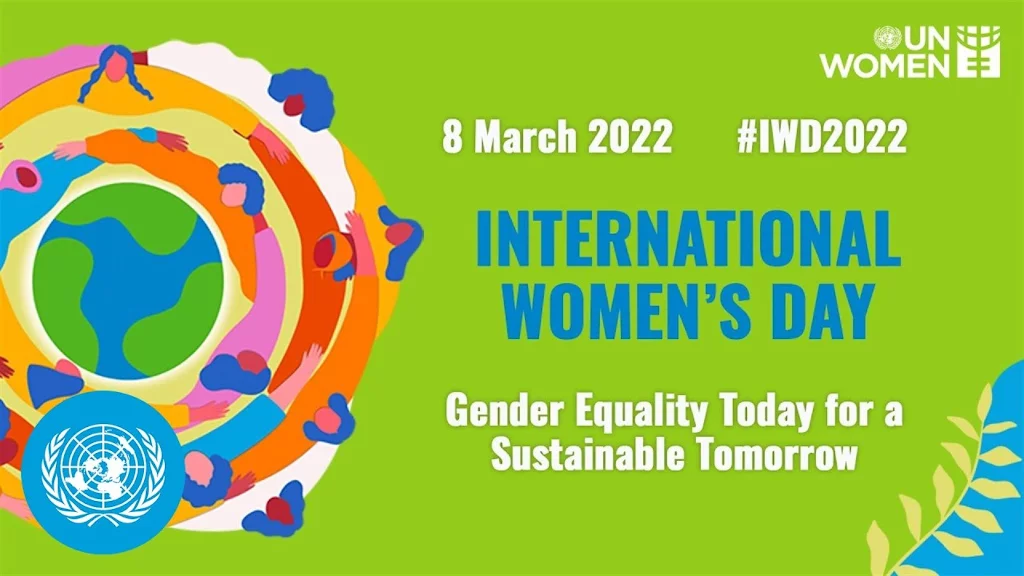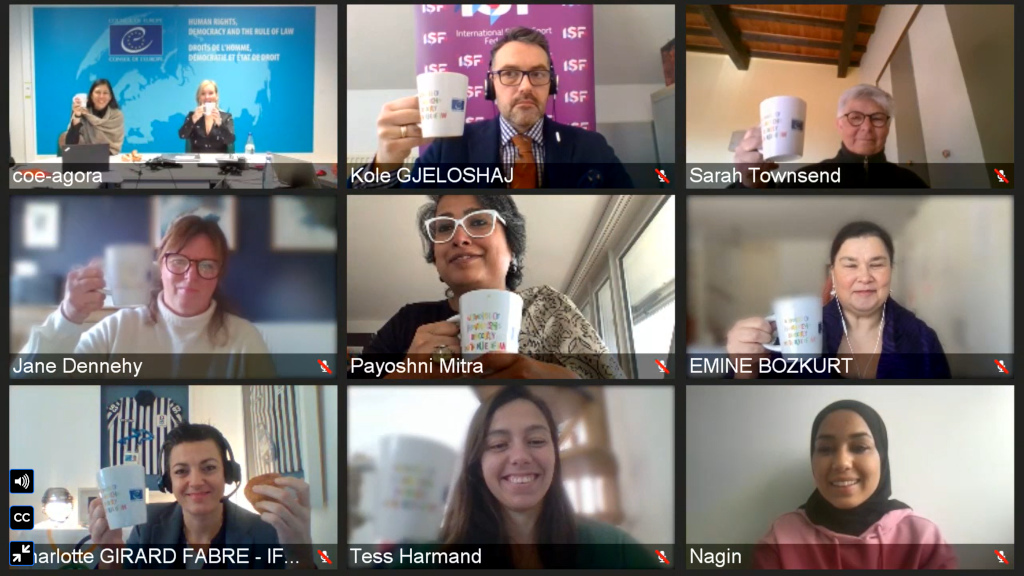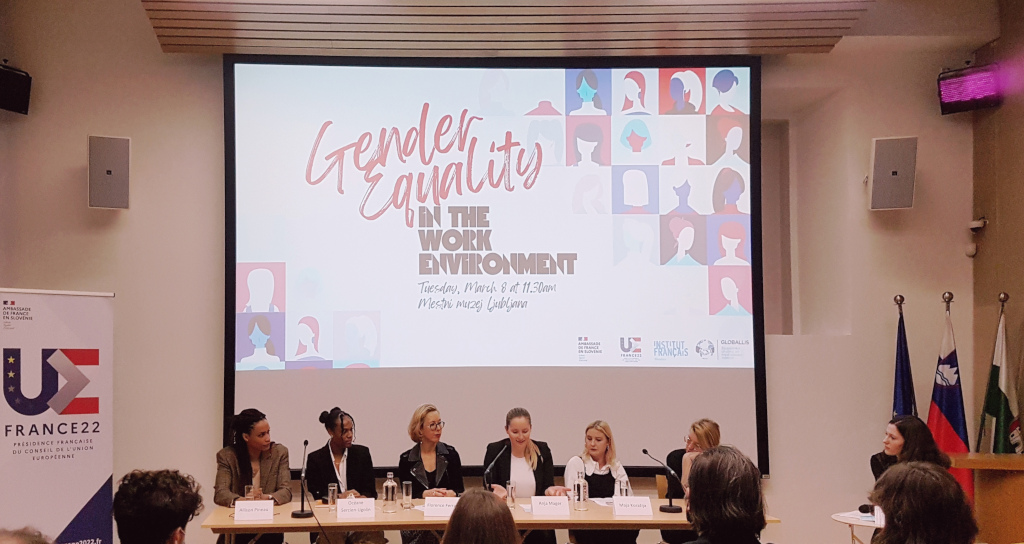Focus on International Women's Day and gender equality

This week, representatives of EUSA and the EUSA Institute attended several events on the topic of gender equality with the highlight being the International Women's Day on March 8.
Since 2017, the EU Work Plan for Sport promotes gender equality as one of its main objectives. It identifies the main underlying challenge as encouraging more girls and women to participate in sport. Like the EU, EUSA strives to provide a safe and positive sporting environment, fighting against gender-based violence in sport and harmful gender stereotypes. Primary goals include promoting female role models and achieving gender balance in decision-making positions such as leadership roles and coaching.
In EUSA sports are offered to men and women; we are working towards equal participation and are achieving relatively good results with the athletes – in 2019 season 41 % of all participants were female. In 2019, Volleyball Championship had the highest female participation – that being 54 % and Handball was the only sport to achieve an exact 50-50 gender balance ratio. However, in the terms of officials’ women are a statistical minority. Although the number of women athletes over the last three editions of European Universities Championships has been 40 %, women continue to be underrepresented as coaching staff at our events.
In September 2019, the Executive Committee (EC) proposed, and the General Assembly adopted, a gender quota system to be progressively enforced in the next three EC elections. The goal is to reach a 40 % minimum gender-based quota. A more diverse top body will not only produce balanced decisions, but also inspire other sports organizations and provide role models across university sports. EUSA Inclusion and Diversity Commission had its kick-off meeting this week. The main goal of the Commission is to promote inclusion and diversity in university sport, which includes spreading values of gender equality, fighting against discrimination, violence, and harassment. 
The Council of Europe with EPAS, its sport division, organised an online event focusing on women in sport on March 8. Invited experts, including Ms Nagin Ravand, a young Danish-Afghan footballer, shared their experience and research conducted in their organisations to try to ensure equality in the field of sport. After presentations there was a roundtable discussion on the next steps to be taken to improve women’s position in sport. The overall all conclusion was that even though women's presence and involvement in sport have progressively evolved, girls and women across the world still get fewer opportunities and less investment, training, and corporate attention when they play sport.
On the same day, the French Ambassy in Slovenia, together with the French Institute of Ljubljana and Globallis - Student Association for International Relations, under the auspices of the French Presidency of the Council of the European Union, hosted the event Gender Equality in the Work Environment. Different professional fields (politics, agriculture, sport) were presented and discussed.
"We must encourage women to speak up and convince them that they are capable of great achievements", said her Excellency Ms Florence Ferrarri, French Ambassador to Slovenia. Ms Allison Pineau and Ms Oceane Sercien, two French handball players in Handball Club Krim and Olympic gold medallists from Tokyo shared their views on gender equality in competitive sport. "There is undoubtedly less attention for women in sport. There is a big influence from the media and individuals and teams grow with it."
On March 9, the International University Sports Federation (FISU) held an online conference titled Gender Equality in University Sports. Ms Rosaura Mendez Gamboa, FISU Executive Committee Member and Chair of the FISU Gender Equality Committee, highlighted the importance of achieving greater gender equality in university sports and to work as a team towards this goal. The event also featured two winners of the FISU Gender Equality Project Award and FISU Gender Equality Champion Award 2021. Ms Beth Jenkinson-Garner representing the British Universities and Colleges Sport (BUCS) presented the University Women's Leadership Programme for Football aiming to "unlock potential of girls' students willing to work in sport." Corelation between women and a safe space to grow are one of the key steps to push for gender equality in sport. Ms Lakshika Madhushani, Senior Lecturer at Sabaragamuwa University of Sri Lanka gave an inspiring speech about tolerance, the power of sport, and shared gender inequalities in Sri Lanka and more broadly in Asia trough her own experience.
United Nations Observance of International Women’s Day 2022 (IWD 2022) was themed Gender Equality Today for a Sustainable Tomorrow. In their conference, they stressed that 2022 is pivotal for achieving gender equality in the context of climate change, environmental and disaster risk reduction, which are some of the greatest global challenges of the twenty-first century. Without gender equality today, a sustainable future, and an equal future, remains beyond our reach. Special guests included, among others, UN Secretary General Mr Antonio Guterres, climate icon Dr. Jane Goodall, and two women that Time magazine has named among the 15 women who will save the world: Dr. Katharine Wilkinson and Hindou Oumarou Ibrahim. The evnt has been recorded, and is available online - see below.
Through its Institute, EUSA is involved in several project focusing on gender equality, the most current ones being Inclusion in Sport (iSPORT), Innovating Football Leadership through Practice and Policy (iFlipp) and PROmoting GendeR Equality in Sports (PROGRES). The before-mentioned projects are co-funded by the Erasmus+ Programme of the European Union.
